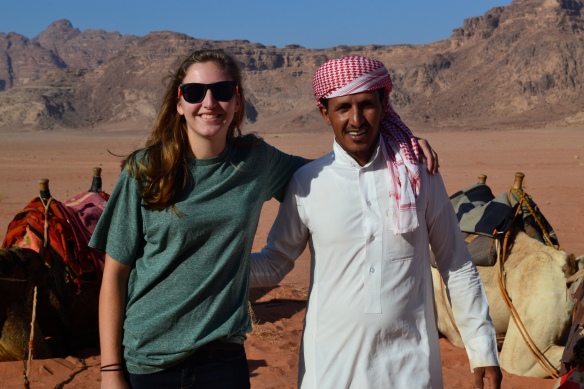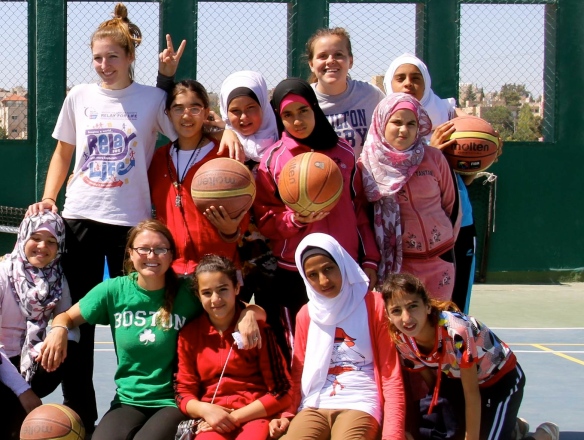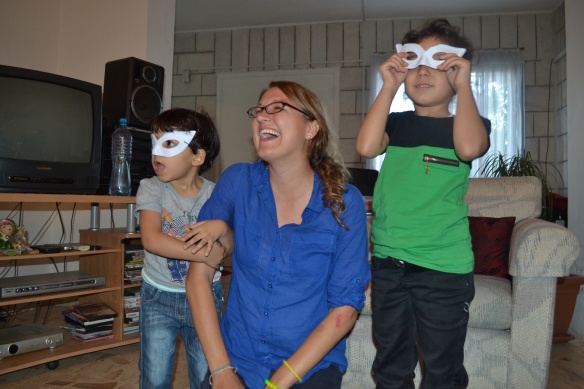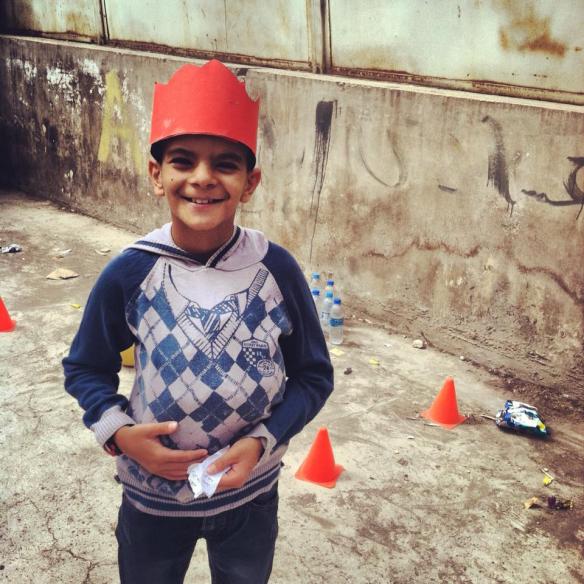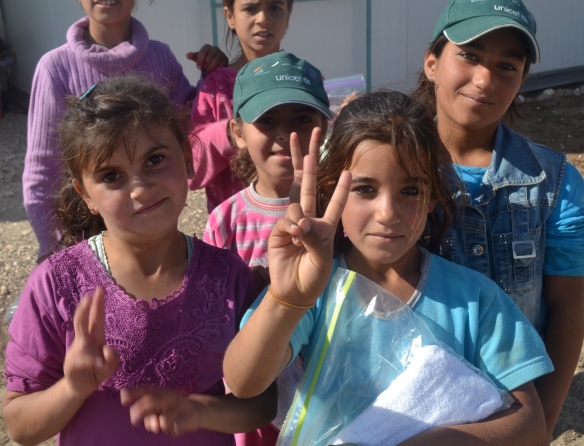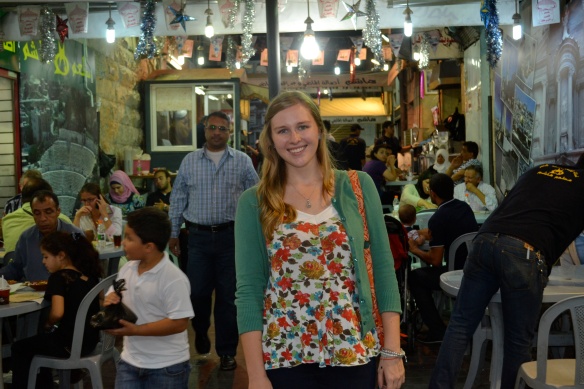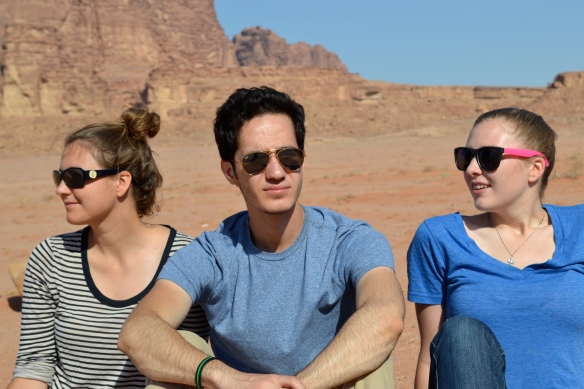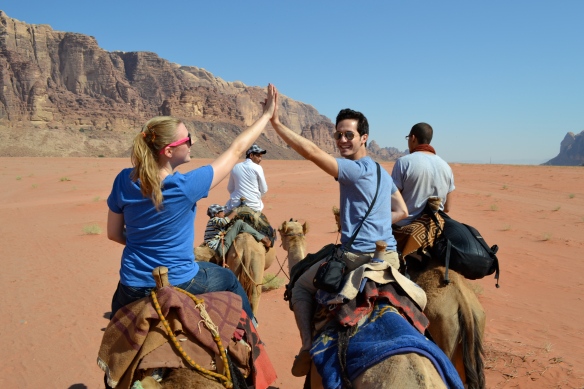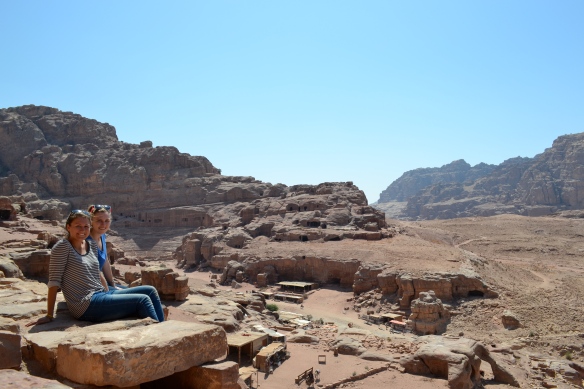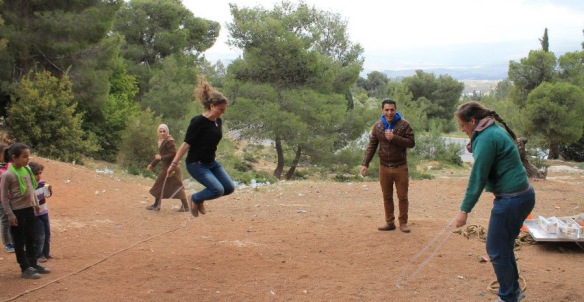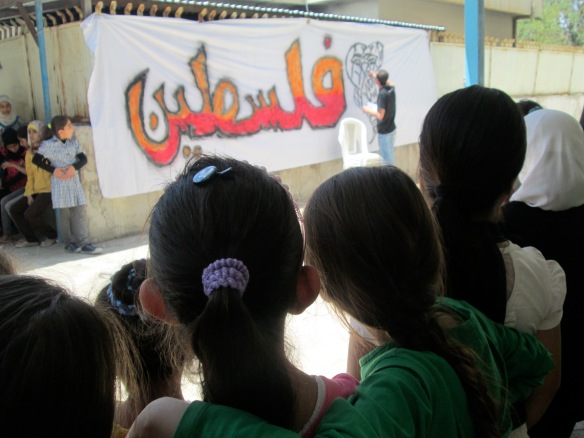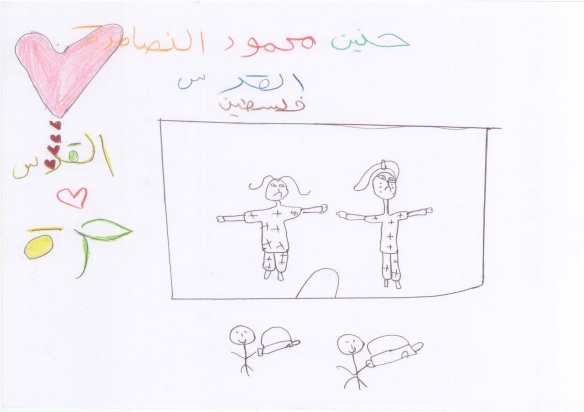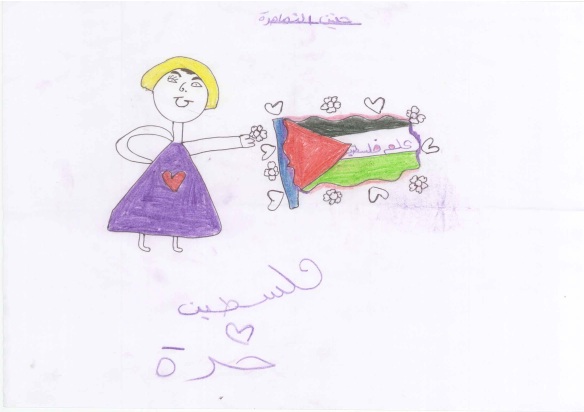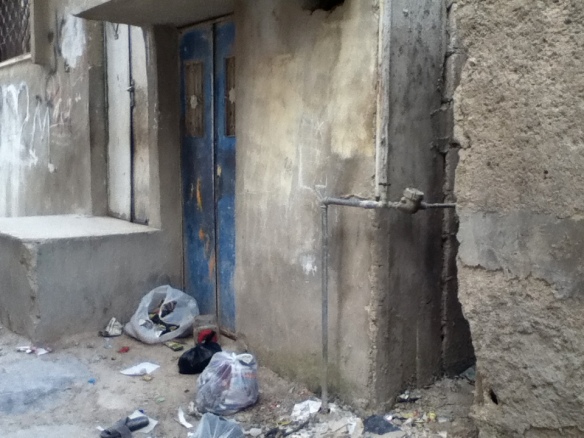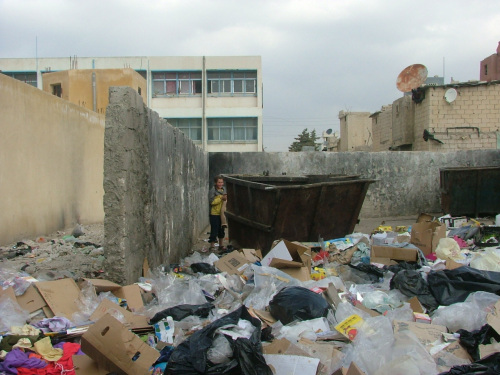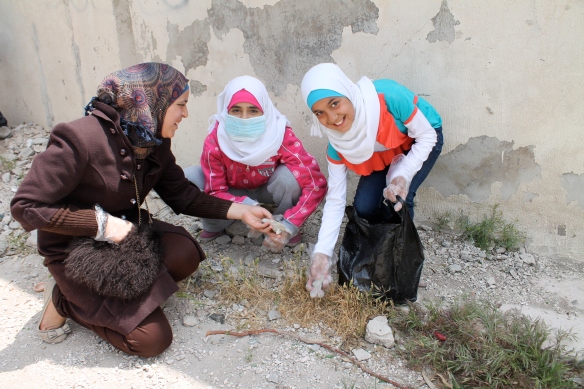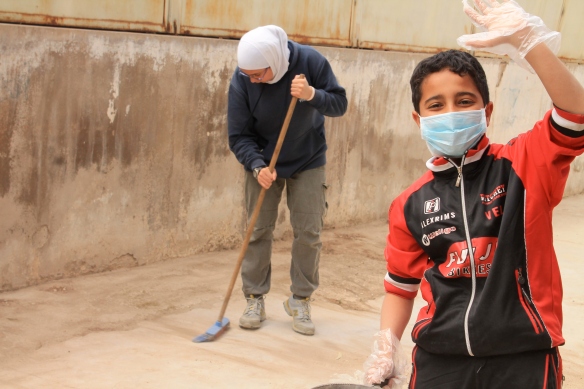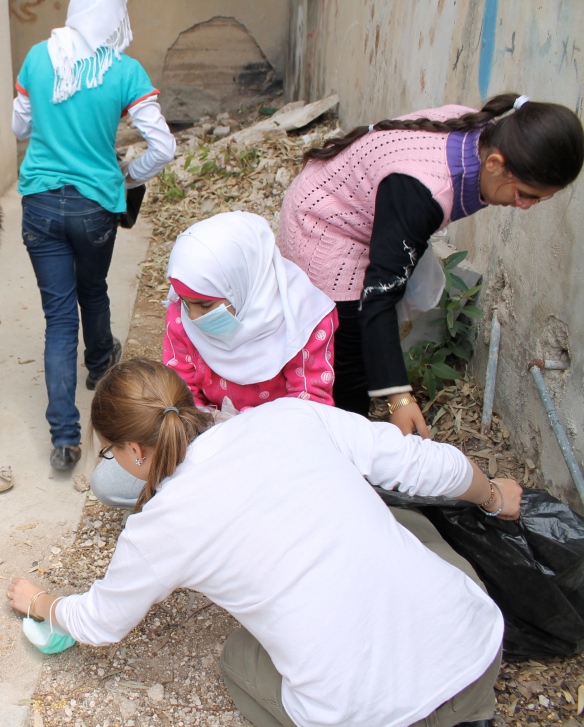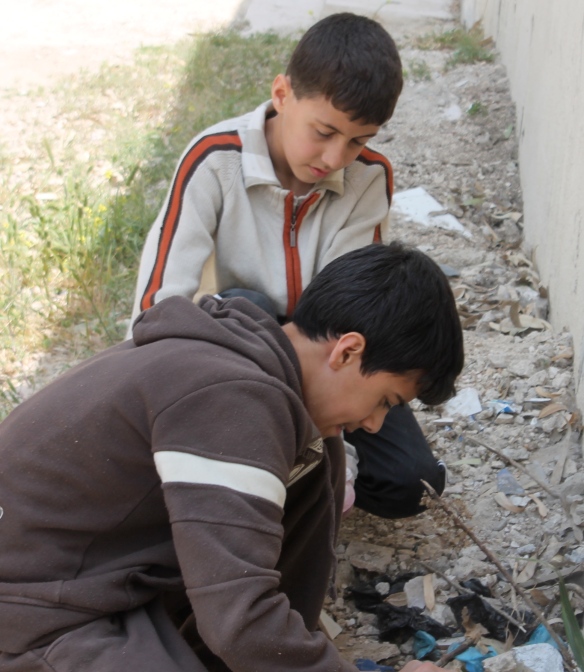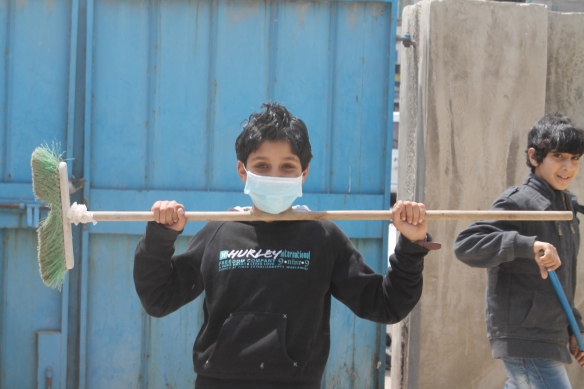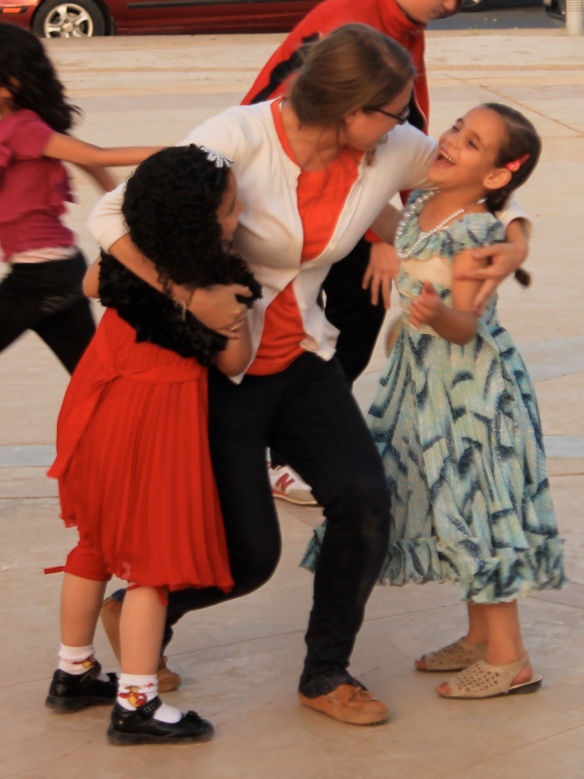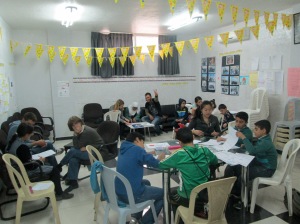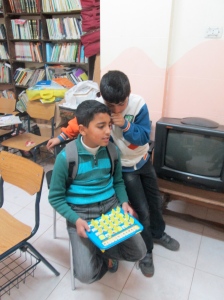Well, Ramadan is over! al hamdulileh.
What can I say about Ramadan? – the holiest month in Islam, during which most Muslims fast from food, water, coffee, smoking… you name it. Fasting begins with the dawn prayer and finishes as the adhan sounds for the sunset prayer. Families gather together and wait patiently for the adhan, then have iftar – the breaking of the fast. From that moment (usually around 7:45) until dawn, people stay up late with their friends and families, eating and celebrating together. Sahour, the last meal before the next day’s fast, comes shortly before dawn – at 3:00 or 4:00 in the morning. Needless to say, there’s not much sleeping during Ramadan.
Ramadan completely changes the city: ranging from a shortened workday (8:30 to 2:30), to a lack of social life/cafes open during the day to late Ramadan nights always finished by fireworks.
For me, I experienced Ramadan in two ways: as a foreigner and as a volunteer.
First of all – as a foreigner. Every day I felt like I was basically fasting. With 99% of the population Muslim, eating in public was out of the question. Nadine and I would go to work, realize we forgot to pack a lunch, then remember that there’s no food anywhere in the office. Khalas, I guess we’re “fasting” today. There were multiple days of purchasing a twix bar between work and going to the OWA, then ducking down a random alley to eat it. #ramadanproblems. Technically, its against the law to eat in public during Ramadan. Besides, even if it wasn’t – its just respectful to refrain from doing so. At night, after iftar, as I drank my bottle of water in a taxi or nibbled on snack as I walked home, I always caught myself heaving a sigh: “I looove eating in public.”
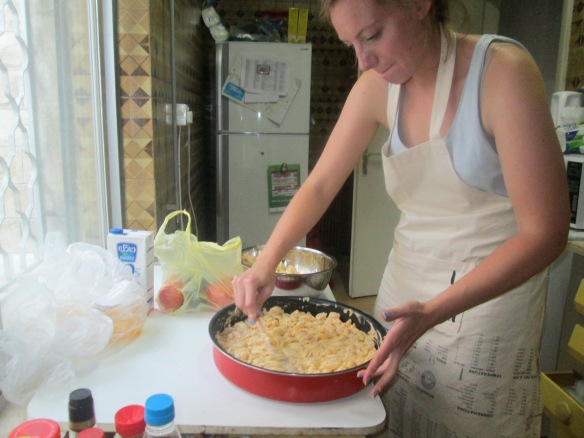
My friend Kait – preparing an iftar for us and some of our students. Note: I helped!
There were, of course, always funny moments too. For example, when I went to Wael’s house during the day and everyone kept trying to feed me. No matter how much I explained that I didn’t want to eat out of respect – and besides, I’m not hungry! – they kept offering and offering (“this isn’t your religion, you don’t need to fast!”)… at one moment Wael’s mom told him to leave the room so I could “eat and not feel shy.”
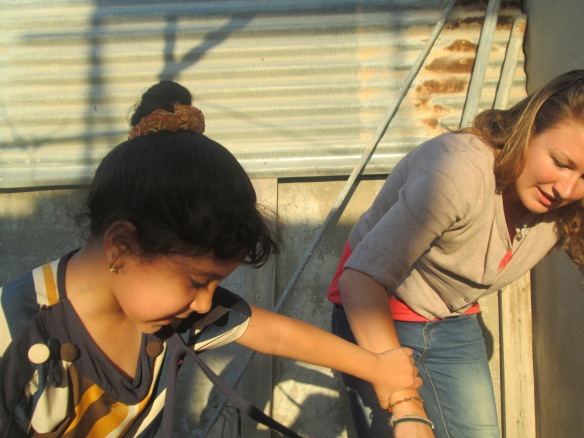
Me, trying to grill meat — Ban, trying to show me how
Its not that us foreigners are alone in these “Ramadan woes.” In fact, many of my friends were not fasting – in particular the other volunteers from Baqaa at the OWA. They are all Muslim, but for various reasons chose not to fast. Some don’t because they are not particularly religious; some only fasted on days that they weren’t busy (can you imagine being in class half a day then at work until iftar without food or water?). I learned quickly that when the office door at the OWA was shut it meant that volunteers were inside – drinking coffee or smoking.
Second all – as a volunteer. The OWA was busier than I’ve ever seen it during Ramadan. I had heard stories of Ramadan (“we work every day, all day”) but to see it in action was something else. During the month of Ramadan, the OWA had 3-5 iftars a week for the kids. It all depended on donations – someone would fund us or host us, then we would organize activities for the kids and take them out to break the fast. It was really telling that on the first night of Ramadan – the night you’d expect everyone to be with their families – we brought 100 children to iftar with the OWA and their donor. Thanks to the OWA, these orphans get to have a Ramadan that feels special too.
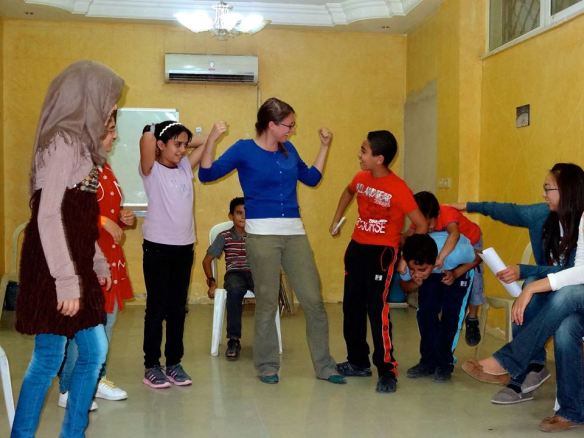
Ahmad and I debating the best dance move to correspond with Knaan’s “Wave Your Flag” – which we performed for donors at one of the big iftars
The OWA also used donations to purchase clothing for each child. After Ramadan, there is a four-day celebration called “Eid.” It’s a little like Christmas in that families gather and give their children presents – usually new Eid clothes. For the orphans, their families cannot afford such gifts. Therefore the center takes the kids out throughout Ramadan and gives them money to purchase a new outfit; last week we gave all the children these gifts. Over Eid, they dressed in their new clothes just like all the other kids.
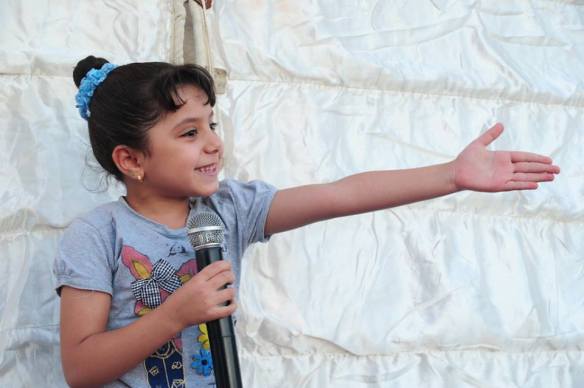
Little Ban singing in front of her (much older) peers at one of the iftars
It probably goes without saying that the OWA is what made Ramadan special for me. Those kids really had a great month — thanks to the hard work of committed volunteers — and I, in turn, did too. So khalas even though I have had enough of Ramadan for next year, I do hope I’m in the region to experience another one in the future.
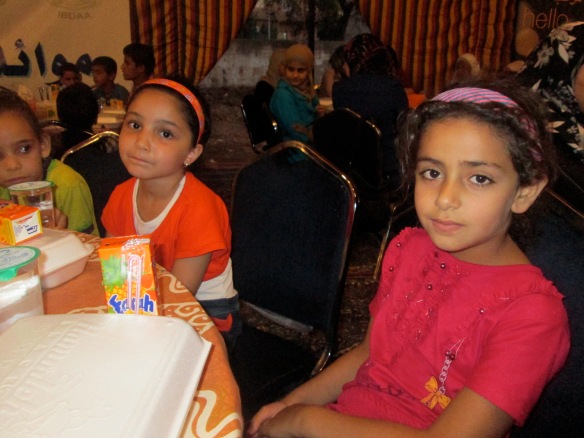 Hungry little ones waiting for the adhan in order to eat their iftar!
Hungry little ones waiting for the adhan in order to eat their iftar!
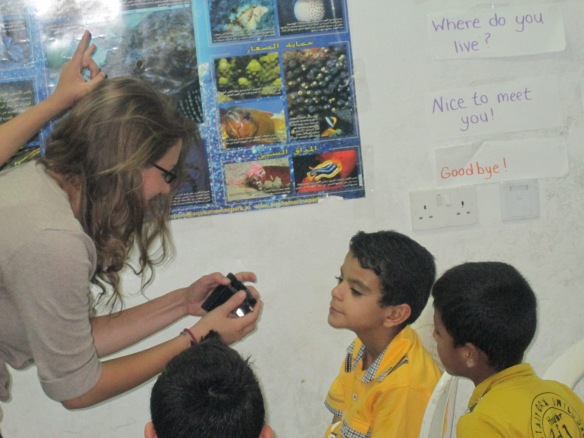
Above and below:
Abu Ghasem and I amusing the little shebab before going out for an iftar
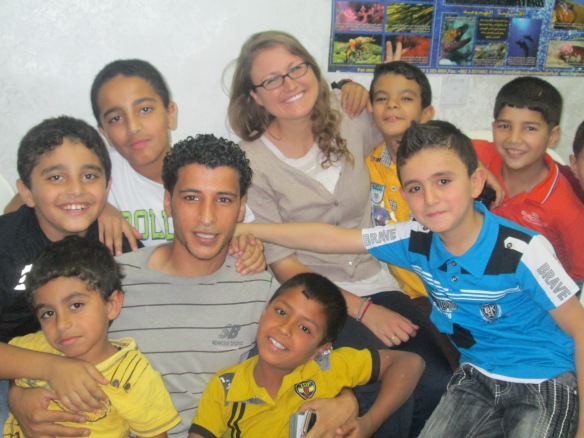
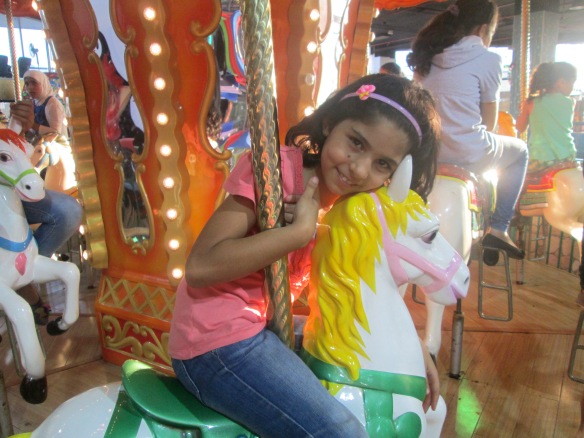 Rama riding on a carousel after we were hosted by an amusement park for iftar!
Rama riding on a carousel after we were hosted by an amusement park for iftar!

